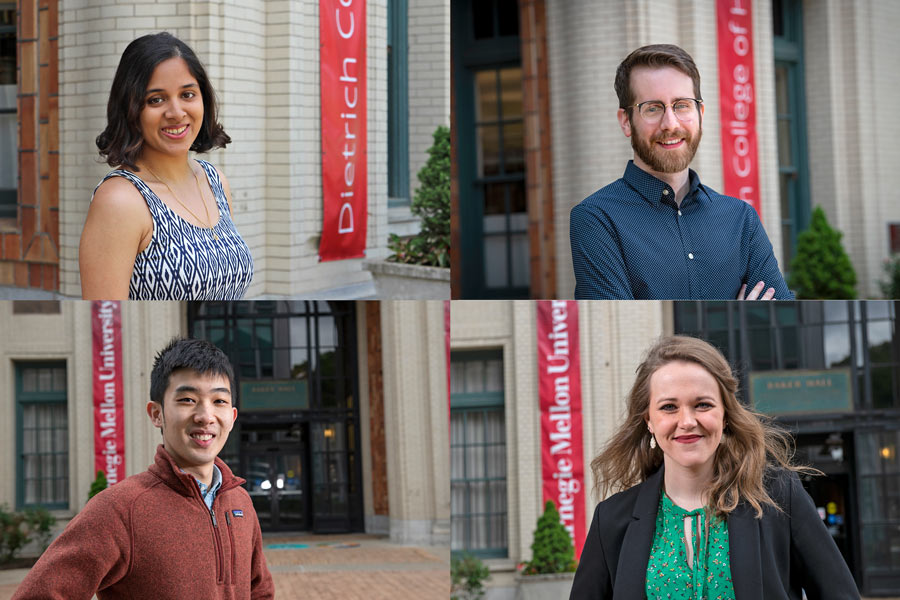
Oh, the Places They’re Going
By Stefanie Johndrow
Every May, graduates of Carnegie Mellon University’s Dietrich College of Humanities and Social Sciences depart campus with a hard-earned diploma and plan for what’s to come. For some that means attending a top graduate school or accepting a dream job, but no matter where Dietrich College graduates land, they’re headed for success.
“What strikes me about Dietrich College graduates is the wide variety of career paths they are prepared to follow,” said Kristin Staunton, assistant director and career consultant in the Career and Professional Development Center.
She continued, “Whether pursuing a technical position in Silicon Valley, continuing studies in law school, or contributing to groundbreaking research, our students are able to thrive in a highly competitive, global and ever-changing workplace. They leave Dietrich College with confidence in their knowledge and secure in their ability to find fulfilling work. As a career consultant, it’s incredibly rewarding to see students realize their potential, and exciting to know that a Dietrich College education has prepared them to create their own unique paths to success.”
Here’s what just a few of Dietrich College’s most recent graduates are up to next.
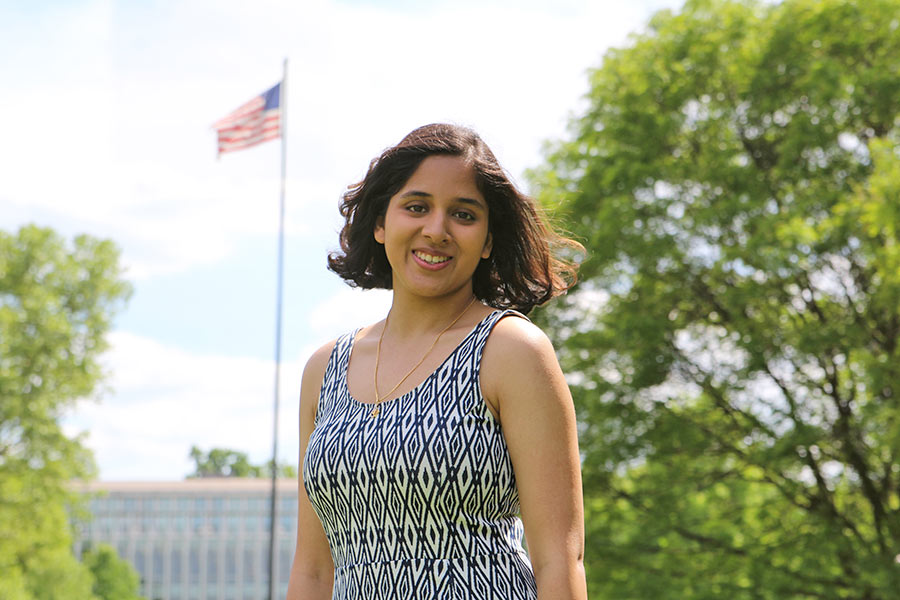
Orchi Banerjee
Since graduating from CMU’s Department of Social and Decision Sciences (SDS) and Institute for Politics and Strategy (IPS), Banerjee has returned home to Washington, D.C. where she’s working as a research assistant at the Institute for the Study of War (ISW), a military intelligence think tank.
As a research assistant, Banerjee is responsible for monitoring all political, military, economic and social developments within her portfolio in order to understand how in-country developments interact with and affect U.S. regional objectives.
“I started out as an ISW intern on the Iraq portfolio in spring 2018, through CMU’s Washington Semester Program,” Banerjee said. “I then extended my internship for that summer. I also completed a separate summer seminar on war studies that was taught by the ISW President. After interning at ISW for about eight months I was offered a research assistant position to begin the summer after graduation.”
In addition to her previous internship with ISW, Banerjee’s studies have helped prepare her for this role.
“All my courses in IPS and SDS have either indirectly or directly helped prepare me for this position. A lot of my IPS coursework discussed key developments in international affairs, allowing me to focus on the Middle East, which is my area of interest,” Banerjee said. “In addition, most of the IPS and SDS coursework prioritize research methods in social science. Learning about research methods became a valuable tool while I was interning at ISW, as much of my work as an intern was evaluating multiple hypotheses at a time and understanding what indicators and pieces of evidence would support or refute those hypotheses. In general, CMU’s focus on teaching research methods really helped me prepare for the methodology needed in intelligence collection and analysis.”
Banerjee urges incoming students to take advantage of classes, office hours and research presentations to forge connections with their professors.
“Students should definitely leverage the professors in both IPS and SDS, as they all have incredible professional backgrounds and interests,” Banerjee said. “One one of my IPS professors recommended that I apply for an internship at ISW because he was aware of my interests, knew about the areas ISW researched and thought the organization would be a good fit for me.
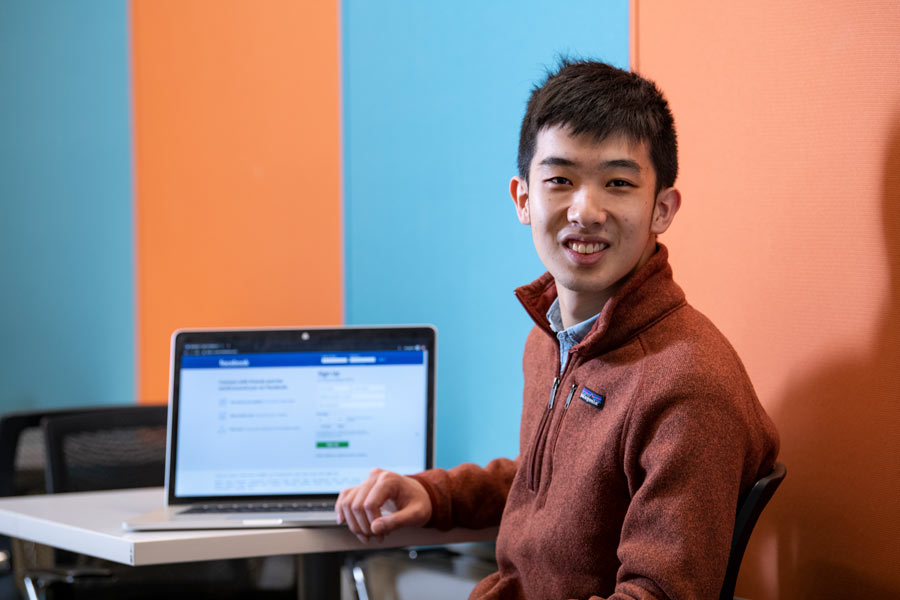
David Hua
A graduate of CMU’s Economics Program, joint between the Dietrich College and Tepper School of Business, Hua is taking his skills across the country and joining Facebook as a software engineer.
“While I don’t know the specifics of my team, I know that I’ll face a variety of technical challenges that affect millions of people all over the world,” Hua said.
Hua is set up for success, thanks to his diverse coursework.
“CMU had a crucial role in helping me build both the technical skills and communication skills I needed to be successful. The algorithms and systems courses in the School of Computer Science gave me a solid technical foundation which will be more relevant for my role, and my experience in the Economics Program helped me build more quantitative and communication skills that will also be valuable throughout my career,” Hua said.
He continued, “CMU’s Economics Program has a quantitatively challenging curriculum —nearly every class forces you to think mathematically about the models that support various economic issues. Employers are really interested in hiring people with problem-solving skills that aren’t afraid to get into technical details, and CMU’s Economics Program does a great job of helping students develop those skills. Students from Econ go down a variety of career paths such as finance, consulting, tech and research.”
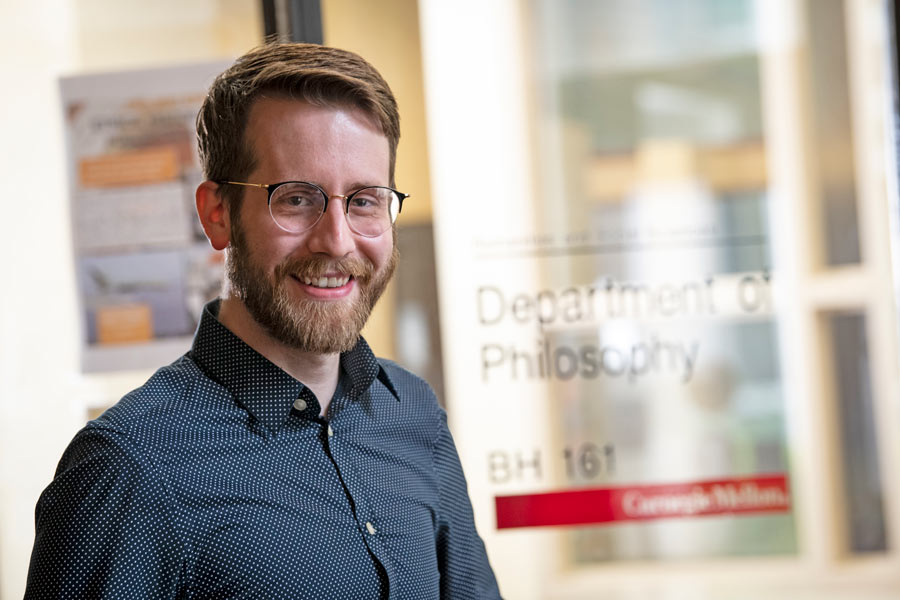
Patrick Walsh
With his Ph.D. from the Department of Philosophy in hand, Walsh will be going from one CMU campus to the next as a teaching professor of philosophy at Carnegie Mellon in Qatar.
“My teaching will focus mainly on ethics, at least for the first couple years. That includes business ethics (how should managers/owners see their obligations to society and their employees), introduction to ethics (straight philosophy, with some history on what sorts of theories people have about how to act morally) and finally a class on either the ethics of computers or more specifically artificial intelligence,” Walsh said.
Having worked at CMU’s Eberly Center for Teaching Excellence and Educational Innovation as a graduate teaching fellow, consulting other graduate students and post-doctoral students on effective pedagogy, Walsh is looking forward to developing better teaching methods for philosophy classes.
“Because I’ll only teach two classes a semester, with class size often well below 30, I will also get to use my time with the Eberly Center to do ‘Teaching as Research’ and contribute to the Scholarship of Teaching and Learning. I can conduct experiments, write articles, go to conferences and I’m thinking of developing a blog or contributing to some publication in a more informal venue,” Walsh said. “This last part was the major selling point for me. I will have the resources, both in time and capital, to really try new things, to assess the impacts of my strategies on student learning and an intellectual freedom that is so rare for teaching professors.”
The transition from Pittsburgh to Doha will be eased by Walsh’s ability to communicate with different audiences, something he picked up during his six years at CMU.
“My work is often way more technical and mathematical than a standard humanities education usually includes, so I’ve had to be able to talk to people from many backgrounds about my interdisciplinary work. This has improved my communication skills, surely. But more importantly, it has improved my willingness and understanding of other worldviews, educational backgrounds and interests,” Walsh said.
He continued, “Although not an official part of my program, the sorts of conversations I’ve had with the intellectually diverse graduate students in philosophy have widened my perspective and helped me be more empathetic and understanding. I think I’m a better person having known the graduate students here, and I’ll certainly take that into my future.”
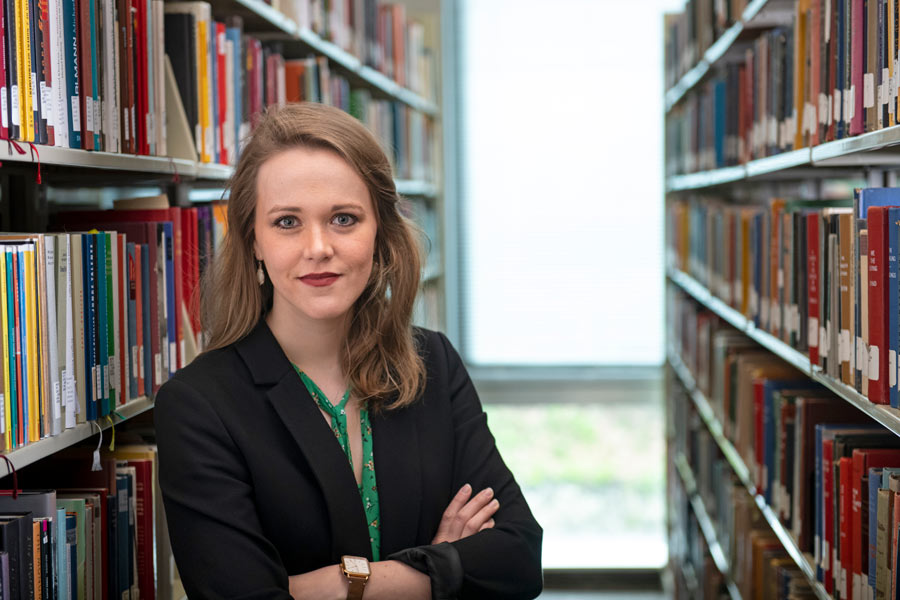
Laine Weatherford
After completing her master’s degree in rhetoric and deciding which of nine law school acceptances to pursue, Weatherford is off to University of Texas at Austin School of Law in the fall.
How did Weatherford react to her nine law school acceptances?
“In one word: shock,” Weatherford said. “But overall, I think my reaction sort of developed cumulatively. With the first few, I was just really excited and kind of surprised. As more arrived, that excitement was definitely still there, but I also began to feel really honored.”
Weatherford, who worked at CMU’s Global Communication Center, plans on going into public interest law.
“I’d like to work specifically in government law, particularly on issues relating to poverty, though I’m still narrowing from there. I was inspired to go in this direction because of my summer employment experiences. I spent the last three summers working as a grant writer at a nonprofit community action agency. In that job, I really had a chance to see the depth of need in our country, and the ways in which we can apply unique solutions to try and mitigate some of it,” Weatherford said.
Courses like Stephanie Larson’s “Feminist Rhetorics” and Doug Coulson’s “Law Performance and Identity” and “Race, Nation and the Enemy” were influential for Weatherford.
“I absolutely believe that my time in the English Department will deeply impact the work I do for the rest of my life,” Weatherford said. “My studies in rhetoric have given me so many tools for understanding a problem in its full complexity, for teasing out the factors at play, for never taking an issue at face value. Beyond that, this program taught me to communicate complexity. It taught me to use writing to look at the world as it is and consider how it could be better. I expect this knowledge will inform my work as a lawyer, both in how I analyze the discursive situations at play in my own work and in how I write and construct texts.”
Weatherford continued, “Overall, I think CMU made me better. It challenged me, deepened my compassion, brought me great friends and honed skills that I really value. I’m really grateful for the time I spent here.”